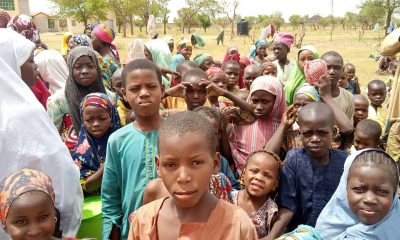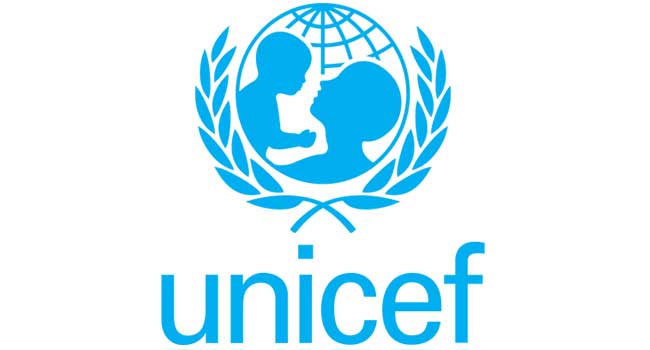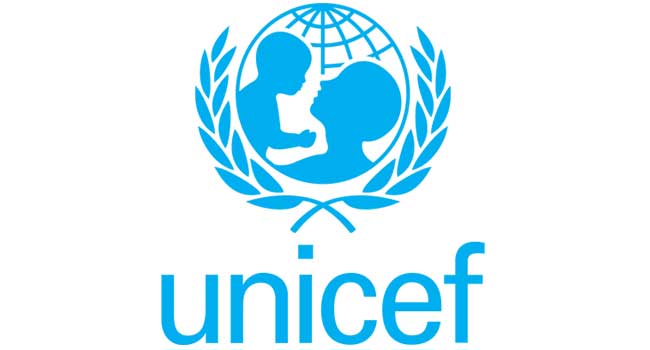Crime
UNICEF welcomes delisting of CJTF in “Children and armed conflict” report
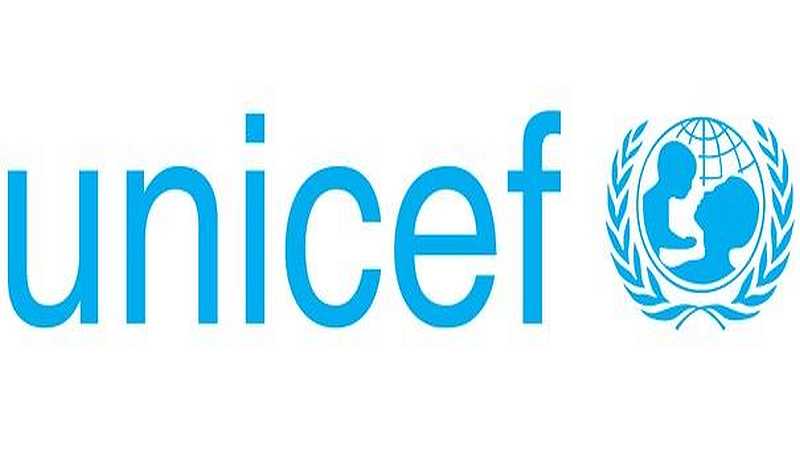
The United Nations Children’s Fund (UNICEF), has welcomed the delisting of Nigeria’s Civilian Joint Task Force (CJTF) from the UN’s 2021 report on Children and Armed Conflict.
UNICEF reacted to the development in a statement released on Monday, in Abuja, describing the UN’s decision as “a step forward for child protection”.
The News Agency of Nigeria (NAN) reports that Antonio Guterres, the UN Secretary-General, in his annual report, delisted the CJTF as one of the armed groups recruiting and using children in North-East Nigeria.
The UN report which was released in May 2021, covered the period January to December 2020.
NAN reports that the annually published UN report aims to highlight trends with regards to the impact of armed conflict on children from countries around the world and provide information on violations committed.
Guterres’s statement in the report reads: “In Nigeria, the CJTF armed group has been delisted following a significant decrease in the recruitment and use of children, through the continued implementation of its action plan, which was signed with the UN in 2017.
UNICEF said that since signing the 2017 Action Plan, the CJTF had released more than 2,000 children, adding that many of the children have enrolled in school and provided psychosocial support.
“This is a welcome development for children in Nigeria. We must remember, however, that this is the first step in a long journey.
“Formed in 2013, to support efforts of the Nigerian military to protect communities from Boko Haram attacks, the CJTF expanded in size and influence in the north-east region.
“At the height of its operations in 2016, the group was listed in the annexes of the secretary-general’s annual report for children and armed conflict for the recruitment and use of children.
“In his latest report released this year, the UN Secretary-General credited the delisting of the CJTF to a significant reduction in the number of children recruited into the ranks of the CJTF.
According to UNICEF, Guterres also credited the delisting to the armed group’s commitment to implement the action plan it signed with the UN Country Task Force on Monitoring and Reporting (CTFMR) in 2017.
It said that the action plan signed by the group was aimed at stopping the recruitment and use of children.
UNICEF said that children have been most affected by the northeast conflict as between 2013 and 2020, more than 3,500 were recruited by parties to the conflict as combatants.
The UN agency said that children used as soldiers were at great risk of death or disability while undergoing armed training and initiation rites, as well as during combat.
It said that girls and boys had also been used as suicide bombers, spies, labourers, cooks, messengers, and wives adding that girls recruited by armed groups often suffer Gender-Based Violence (GBV), including rape.
“They are forced to witness or participate in tortures and killings, triggering lifelong physical and mental health challenges.
“Similarly, they are denied access to education, nutrition, and conducive living conditions, among other grave violations of their rights.
The statement quoted Phuong Nguyen, the Chief of UNICEF’s Maiduguri Field Office, as saying “I urge the leadership of the CJTF to establish child protection units across its offices.
“This will help to prevent future recruitment and use of children. It will also allow the group to consistently model its agreement to not use children for any kind of role.
“Recruiting children into armed groups steals their innocence and the protection they need. We should not forget, deploying children as soldiers imperil the peace and perpetuate the cycle of generational violence.
Nguyen called on other armed groups and parties to the conflict, to immediately stop the recruitment of children and safely reintegrate them with their families and communities. (NAN)
Crime
Police Foil Cult Initiation in Anambra, Arrest Six Suspects
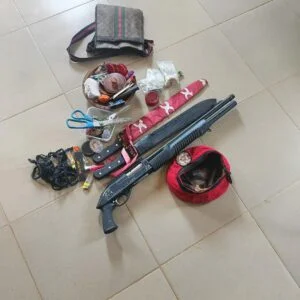
The Anambra State Police Command has foiled a cult initiation ceremony in Nawfia, Njikoka Local Government Area of the state.
Spokesperson for the Command, SP Tochukwu Ikenga, disclosed this in a statement issued on Tuesday in Awka.
According to Ikenga, the operation was carried out by police operatives around 9:30am on June 15, leading to the arrest of six suspects at the scene.
Recovered during the raid were one Jojef pump action gun, two cartridges, and a golden-coloured Lexus SUV with registration number ATN 202 AE. Other items found include two cutlasses, two scissors, a cap bearing the inscription of the Supreme Vikings Confraternity, charms, and substances suspected to be hard drugs.
“They are currently undergoing police interrogation to get more insight into their modus operandi, after which the case will be charged to court on the conclusion of the investigations,” Ikenga stated.
The police spokesperson reassured residents of the command’s unwavering commitment to fighting cultism and other related crimes across the state.
Crime
Court remands 2 over alleged attempted murder

An Ikeja Magistrates’ Court, Lagos, on Wednesday, remanded two persons, Olaitan Fasasi and Kehinde Tobiloba in a correctional facility over alleged attempted murder.
Fasasi, 40, and Tobiloba, 26, whose addresses were not provided, are being charged with conspiracy, attempted murder and membership of a secret society.
The Magistrate, Mr L.A Owolabi, did not take the plea of the defendants for want of jurisdiction.
Owolabi directed the police to forward the case file to the Director of Public Prosecution for legal advice.
He thereafter adjourned the case until May 31 for mention.
The Prosecutor, Josephine Ikhayere, told the court that the defendants committed the offences at about 5.02p.m on Feb. 15, at Mushin, Lagos.
She said that Fasasi, Tobiloba and others now at large, attempted to commit murder by shooting at a resident, Alfred Ademola.
“They armed themselves with a locally made gun. They belong to Eiye Confraternity, a group proscribed by law,”, she said.
Ikhayere said that the offences contravened Sections 230(1) and 411 of the Criminal Law of Lagos State, 2012.
He said that the actions of the defendants also contravened Section 2(3)(a)(b)(c)(d) of the unlawful societies and Cultism Law of Lagos State Law.
Crime
Man jailed 3 months for stealing mobile phone

An Area Court in Jos, on Tuesday, sentenced one Jeptha John, to three months imprisonment for stealing a Redmi mobile phone valued at N165, 000.
The judge, Shawomi Bokkos, sentenced the John after he pleaded guilty to the offence.
The judge, however, gave the convict an option to pay N20, 000 fine and N50, 000 restitution to the complainant.
Bokkos said that if the convict defaulted in paying the restitution, three months should be added to his sentence to make it six months imprisonment.
Earlier, the police prosecutor, Insp Monday Dabit, told the court that the case was reported at the B Division Police Station, Jos, on Dec. 1, 2024, by Ms Nerat Danjuma.
He said that the complainant alleged that the defendant trespassed into her house and stole her mobile phone valued at N165, 000.
The prosecutor further told the court that the offence contravened the Plateau State Penal Code, Law of Northern Nigeria.
-

 Headlines4 years ago
Headlines4 years agoFacebook, Instagram Temporarily Allow Posts on Ukraine War Calling for Violence Against Invading Russians or Putin’s Death
-

 Headlines4 years ago
Headlines4 years agoNigeria, Other West African Countries Facing Worst Food Crisis in 10 Years, Aid Groups Say
-

 Foreign4 years ago
Foreign4 years agoNew York Consulate installs machines for 10-year passport
-

 News1 year ago
News1 year agoZero Trust Architecture in a Remote World: Securing the New Normal
-

 Entertainment3 years ago
Entertainment3 years agoPhyna emerges winner of Big Brother Naija Season 7
-

 Headlines2 years ago
Headlines2 years agoNigeria Customs modernisation project to check extortion of traders
-

 Entertainment2 years ago
Entertainment2 years agoMovie download platform, Netnaija, announces closure
-

 Economy2 years ago
Economy2 years agoWe generated N30.2 bn revenue in three months – Kano NCS Comptroller





